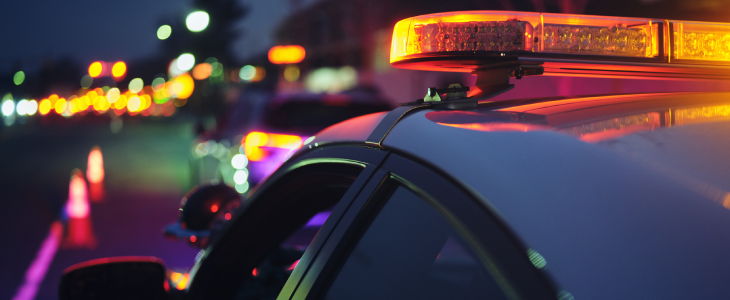If you are like most folks here in Texas, you like to ring in the New Year at a party with friends. You count down the seconds and shout “Happy New Year!” while popping a bottle of champagne. New Year’s Eve is a holiday often associated with drinking, which is why it can have more than its fair share of DWI Accidents. Too many celebrants leave New Year’s Eve parties in no condition to drive. Yet they misjudge the situation, getting behind the wheel of a car and getting into an accident. This is why so many DWI accident lawyers find a great deal of work in January every year. But is New Year’s Eve the holiday with the most DWI accidents? Let’s see if that is the case and explore the reasons behind the occasions with the most drunk driving accidents.
What holiday has the most DWI accidents?
Every year, the National Highway Traffic Safety Administration (NHTSA) takes a look at the holidays with the most DWI accidents and fatalities. Not surprisingly, New Year’s Eve ranks at or near the top of the list. For example, in 2018, the week between Christmas and New Year’s Day saw 1,087 traffic fatalities, more than 194 on the Fourth of July, 414 on Labor Day, and 513 on Thanksgiving that year. However, on average, the holiday that accounts for the most fatal car accidents involving alcohol is Memorial Day. The three-day weekend that traditionally kicks off Summer is also a time when many young drivers hit the road under the influence, leaving their sobriety behind.
Still, there is something special about New Year’s Eve. The statistics show that more than half of all accidents on that holiday involve at least one person driving under the influence. This may be the case that the holiday is more associated with drinking than any other.
What Are Some Commonalities Among These Holidays?
As you can see, New Year’s Eve is not the only holiday that involves high amounts of DWI accidents. Independence Day, Labor Day, Memorial Day, and Thanksgiving also see many people driving under the influence. Aside from the obvious conclusion that all five holidays often involve the consumption of alcohol, there is another factor. Each of these holiday parties usually runs late into the night. Unlike Christmas, Easter, and other holidays that are celebrated during the day, with New Year’s Eve and the others, celebrants are often still drinking late into the evening.
On New Year’s Eve, folks are out until well past midnight. Driving at night adds its own risks, especially when you factor in alcohol and fatigue. First, your visibility is not as good as it is during the day. This affects your ability to judge distances. Second, you may already be fatigued, especially if you did any work during the day on December 31. Finally, the consumption of alcohol later in the day may also be affected by your metabolism. While in general, a person metabolizes one drink per hour, at night the rate may slow down. Also, if you have alcohol with food, which often happens during Christmas and Easter, this will lower the absorption rate of alcohol. This is often not the case with New Year’s Eve, Independence Day, and the other holidays not including Thanksgiving.
What Can Be Done to Reduce DWI Accidents on Holidays?
The easiest way to reduce this is to refrain from drinking and driving. If you plan to drink, choose someone in your group to stay sober as the designated driver. When this is not feasible, try to take public transportation on these holidays or arrange for a rideshare. No matter what you do, never get behind the wheel of a motor vehicle if you have been drinking. Driving under the influence increases your chances of an accident exponentially. It also can lead to major legal trouble, especially if the accident results in a fatality. A DWI accident can truly ruin your holiday in so many ways. Having one on New Year’s Eve can make for a very unhappy New Year.
If You Were Injured in a DWI Accident, Contact Our Personal Injury Attorneys
Getting injured in a DWI accident can have many negative effects on your life. If you’ve been injured in an accident due to a drunk driver, contact our Houston personal injury lawyers today.

